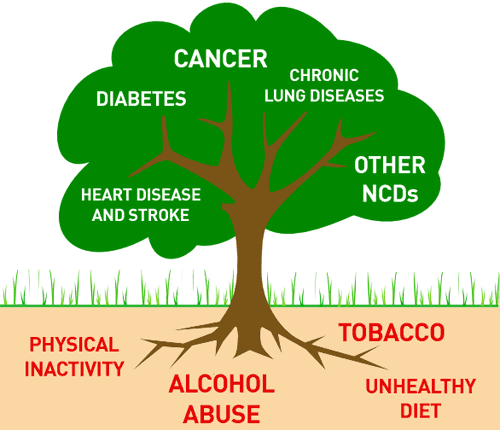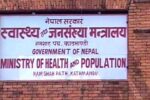KATHMANDU: Sixty-six percent of the people in Nepal die from non-communicable diseases. The same figure for the world is 71 percent.
Lack of sound sleep, negative thinking, lack of healthy and balanced food and increasing rate of smoking and alcohol consumption have been attributed to the high number of deaths caused by non-communicable diseases, the State-3 government’s ministry of social development, health directorate said.
Directorate’s director Badri Bahadur Khadka said in Nepal also 66 percent of the people died from non-communicable diseases.
According to him, 85 percent of people in the country came to hospitals with problems related to non-communicable diseases. Heart diseases, blood pressure, diabetes, asthma, cancer, etc. are non-communicable diseases.
The Directorate also stated that 18 percent of the 85 percent of patients suffering from non-communicable diseases in Nepal were found suffering from mental disease.
It is stated that compared to males, females suffered more from depression. Information was also shared at a program here that more people suffered from Kala-azar in Palpa of State-5; that 12,375 people in Nepal died in disasters; that only 50 percent of pregnant women in State-5 had taken Vitamin A and that 13 percent consumed narcotic substances.
(Agencies)









Comment